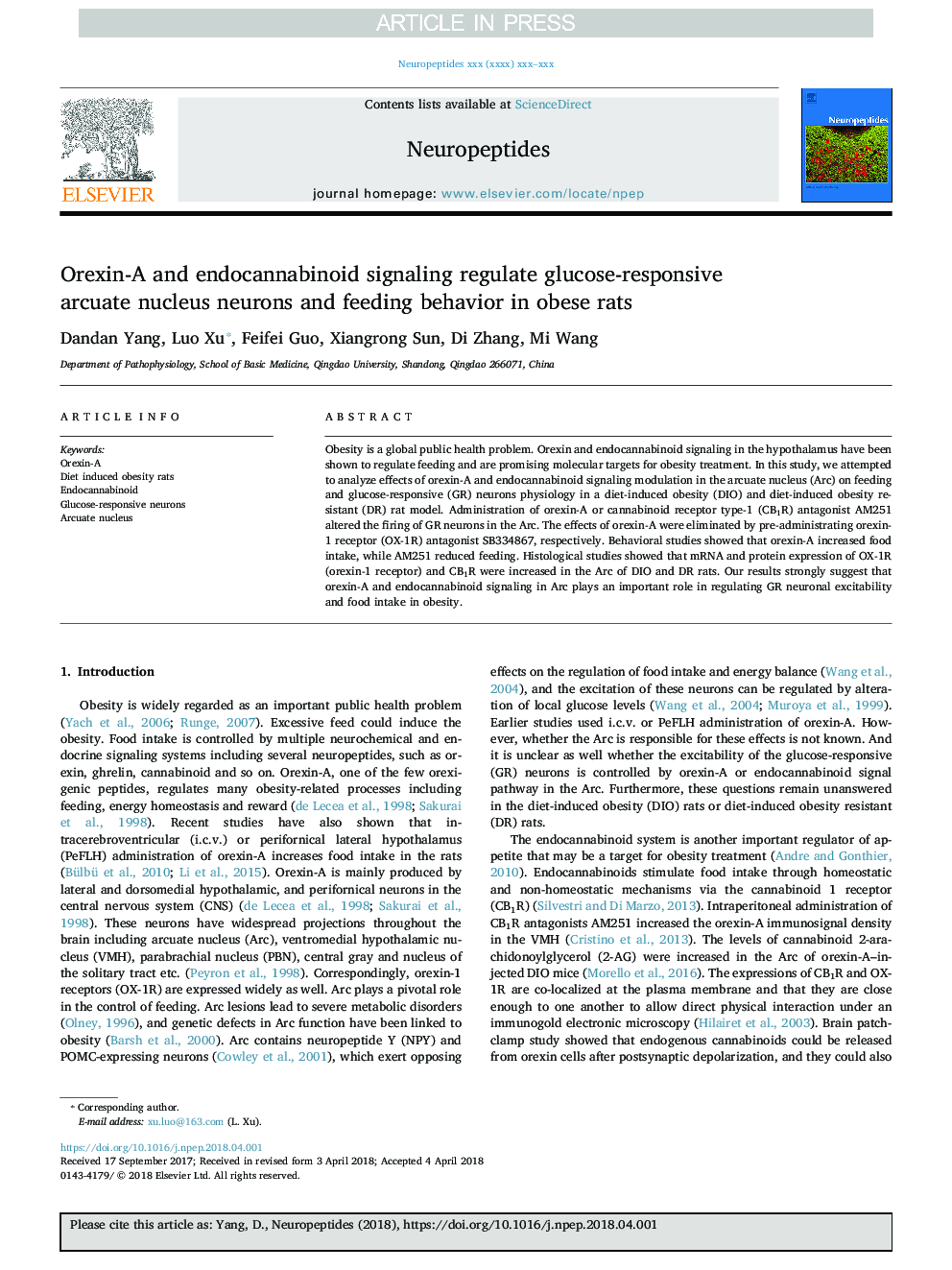| Article ID | Journal | Published Year | Pages | File Type |
|---|---|---|---|---|
| 8633229 | Neuropeptides | 2018 | 13 Pages |
Abstract
Obesity is a global public health problem. Orexin and endocannabinoid signaling in the hypothalamus have been shown to regulate feeding and are promising molecular targets for obesity treatment. In this study, we attempted to analyze effects of orexin-A and endocannabinoid signaling modulation in the arcuate nucleus (Arc) on feeding and glucose-responsive (GR) neurons physiology in a diet-induced obesity (DIO) and diet-induced obesity resistant (DR) rat model. Administration of orexin-A or cannabinoid receptor type-1 (CB1R) antagonist AM251 altered the firing of GR neurons in the Arc. The effects of orexin-A were eliminated by pre-administrating orexin-1 receptor (OX-1R) antagonist SB334867, respectively. Behavioral studies showed that orexin-A increased food intake, while AM251 reduced feeding. Histological studies showed that mRNA and protein expression of OX-1R (orexin-1 receptor) and CB1R were increased in the Arc of DIO and DR rats. Our results strongly suggest that orexin-A and endocannabinoid signaling in Arc plays an important role in regulating GR neuronal excitability and food intake in obesity.
Related Topics
Life Sciences
Biochemistry, Genetics and Molecular Biology
Endocrinology
Authors
Dandan Yang, Luo Xu, Feifei Guo, Xiangrong Sun, Di Zhang, Mi Wang,
